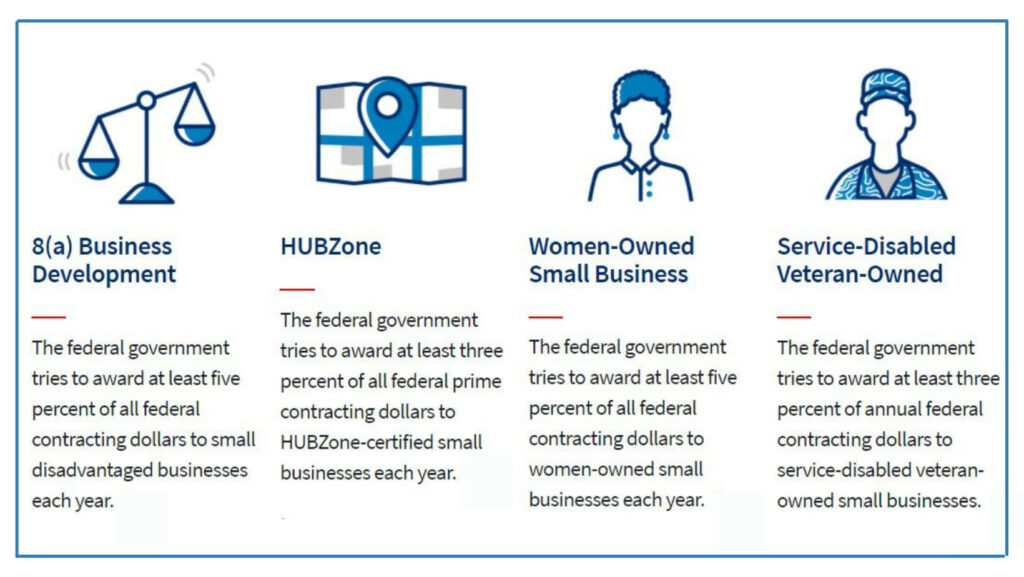If you’re a small business owner looking to access government contracts, you need to understand the differences between federal and state small business certifications. This knowledge can be crucial. While both offer opportunities to grow, they serve different purposes. They have unique eligibility requirements. These certifications open doors to different types of contracts. Let’s break down these key differences so you can choose the best path for your business.
Federal vs. State Certifications: An Overview
- Federal Certifications: The Small Business Administration (SBA) manages federal certifications. These certifications give you access to contract opportunities across all federal agencies. This includes the Department of Defense and NASA.
- State Certifications: State-level certifications offer contracts within a specific state. These include projects for state departments of transportation, public works, and local schools.
Key Takeaway: Federal certifications are perfect for businesses aiming to expand nationwide. State certifications help companies focus on local or regional projects.
Image Placeholder: Visual diagram comparing federal and state certifications, with icons for different agencies (e.g., SBA, DOT, local state offices).


Types of Certifications
Both federal and state agencies offer certifications, with some overlap:
- Federal Certifications:
- Small Business Certification: For businesses meeting SBA size standards.
- 8(a) Program: For socially and economically disadvantaged businesses.
- Women-Owned Small Business (WOSB) and Service-Disabled Veteran-Owned Small Business (SDVOSB): Targeted for women and veteran-owned businesses.
- HUBZone: For businesses in economically disadvantaged areas.
- State Certifications: Each state sets its own standards, with certifications often tailored for:
- Minority Business Enterprise (MBE)
- Women’s Business Enterprise (WBE)
- Veteran Business Enterprise (VBE)
Key Takeaway: Federal programs target nationwide eligibility, while state certifications are tailored to meet local economic needs.

Eligibility and Application
- Federal Certifications: Typically have detailed requirements based on business size, revenue, and ownership. The application process is often extensive, taking several months to finish.
- State Certifications: Requirements vary by state but usually have shorter, more accessible application processes focused on local business standards.
Key Takeaway: Federal certifications involve more comprehensive documentation, while state certifications are faster to obtain.

Benefits and Contract Access
- Federal Certifications: Enable businesses to bid on a range of federal contracts, which can include large-scale national projects.
- State Certifications: Allow businesses to access state-funded projects that support local infrastructure, education, and public service contracts.
Key Takeaway: Federal certifications provide access to high-value, national contracts. State certifications focus on smaller, local projects with a regional impact.
Which Certification is Right for Your Business?
Ask yourself the following:
- What’s the scope of my business? If you aim to work across the country, federal certifications might be the best fit. For local projects, a state certification may be more beneficial.
- Do I meet specific federal criteria? Certifications like HUBZone and 8(a) have unique requirements and can lead to exclusive federal opportunities.

Conclusion
Both federal and state certifications provide pathways to growth in government contracting, but they cater to different business goals. Federal certifications support nationwide expansion, while state certifications empower local business efforts.
At Artius, we’re here to help you navigate these options. We aim to identify the certification path that aligns best with your business objectives. Reach out today to explore how certification can help unlock new contracting opportunities for your business.
Image Placeholder: Contact information graphic or button inviting readers to contact Artius for certification help.



You must be logged in to post a comment.